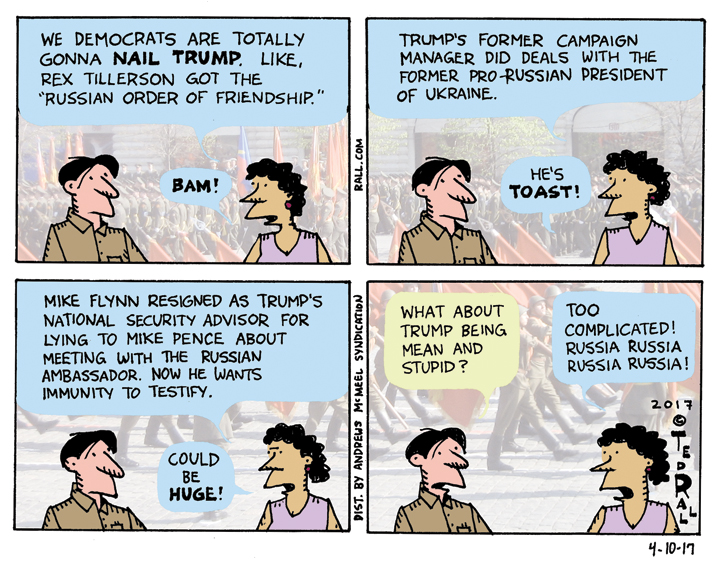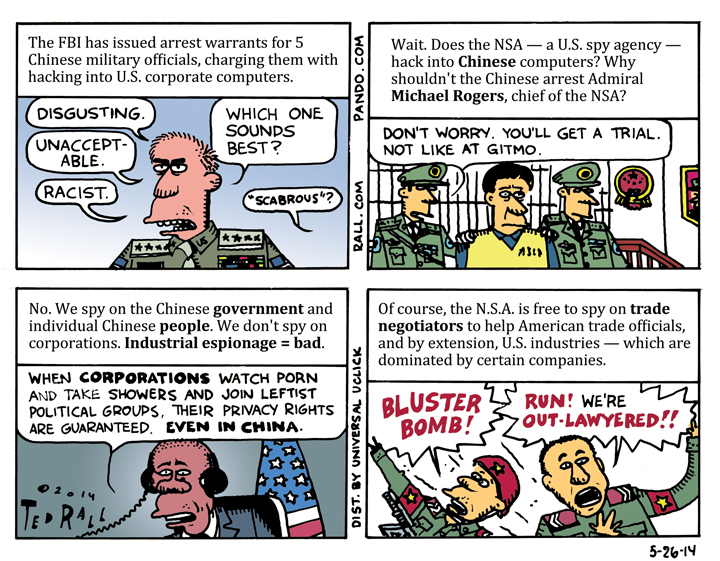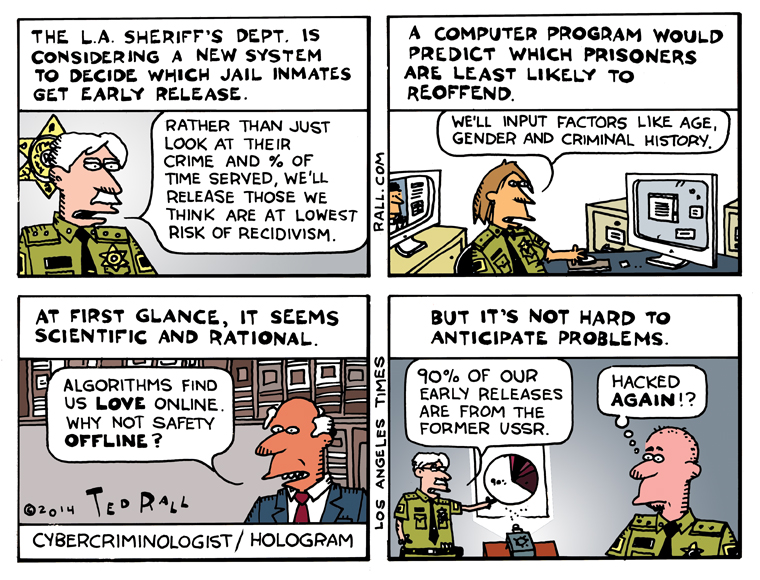
Russia — OK, not the actual Russian government but a private click-farm company located in Russia — bought $100,000 worth of political ads on Facebook designed to change the outcome of the 2016 election. Except that only a small fraction of those ads were political. Also except that that small fraction was divvied up between pro-Hillary Clinton and pro-Donald Trump ads. And especially except that $100,000 in Facebook ads can’t affect the outcome of a $6.8 billion election.
Now the same media outlets who touted Robert Mueller’s fizzled Russiagate investigation daily for three years is warning that Russia is planning to do the same thing in 2020.
Be slightly afraid. Very slightly afraid.
“Our adversaries want to undermine our democratic institutions, influence public sentiment and affect government policies,” read a statement from top Trump Administration security officials issued in November. “Russia, China, Iran, and other foreign malicious actors all will seek to interfere in the voting process or influence voter perceptions.”
Setting aside the question of whether it’s smart to take the U.S. government at its word — it isn’t — if Russia were to meddle in our domestic politics, we would have it coming.
To say the least.
Throughout its history the United States repeatedly attacked, sabotaged and undermined the Soviet Union. U.S. interference was one of the major contributors to the collapse of that country in 1991. So the Russian government that followed — the Russian system now in place — might not even exist if not for the United States.
Imagine being one of the freshly-minted leaders of Russia in the months following the 1917 Bolshevik Revolution. You have a lot on your plate. The last thing you need is a U.S.-led invasion force of tens of thousands of troops invading your chaotic new country, most of which is primitive and dirt-poor. But that’s what they got. It took three years to kick out our troops.
That’s a little more interferency than Facebook ads.
During World War II the U.S. and the USSR were allies against Nazi Germany — enemy of my enemy and all that — but even after promising to jump in the feckless Americans dragged their feet for three years before getting into the war, content to stand down as tens of millions of Soviet citizens died. FDR “deliberately made the Soviet people shoulder the hardships of war and hoped to see the Soviet Union bled white,” a wartime commander named Ivan Kuzovkov told Tass news service in 1984.
In 1962 JFK took the world to the brink of World War III because the Soviet Union had placed missiles in Cuba, 90 miles away from Florida. Yet two years earlier the Soviets shot down American spy pilot Gary Powers in what became known as the U-2 incident. There’s no question that the plane was over Soviet airspace. It was an act of war. But even at the height of the Cold War the Soviets chose to look the other way. Can you imagine what would happen if Russia had done the same thing to us?
In 1982 President Ronald Reagan approved an ingenious CIA operation to blow up a huge natural gas pipeline running across Siberia. “In order to disrupt the Soviet gas supply, its hard currency earnings from the West, and the internal Russian economy, the pipeline software that was to run the pumps, turbines and valves was programmed to go haywire after a decent interval, to reset pump speeds and valve settings to produce pressures far beyond those acceptable to pipeline joints and welds,” recalled a former member of Reagan’s national security council. The result was economic disruption, environmental catastrophe and “the most monumental non-nuclear explosion and fire ever seen from space.”
Blowing up the equivalent of the Trans-Alaska Pipeline was a tad more dramatic than releasing DNC emails. Not that there’s any evidence that Russia was behind that.
In 1983 Korean Airlines flight 007 — gotta love the subtlety of the number — was shot down over northeastern Russia after its pilot turned off the plane’s transponder and ignored orders to withdraw from militarily-sensitive Soviet airspace. KAL flight 007 had penetrated 587 km into the USSR, a world record for “off course” aerial navigation. It’s impossible to know for sure but given the close ties between South Korea and the U.S. at the time it’s likely that the airline allowed the CIA to affix high-resolution spy cameras to the plane. They gambled the lives of the passengers on the assumption that the Russians wouldn’t fire on a civilian airliner.
Another Reagan-era project involved economic sabotage. Because oil and gas were major Soviet exports, the U.S. convinced Saudi Arabia to ramp up production of its own energy reserves. Oil and gas prices fell globally, the Soviet economy went into a tailspin and U.S. taxpayers compensated the Saudis for doing them a favor. If Russia had purposefully caused the 2008-09 financial meltdown just to mess with us we would view it as an act of war.
In 1991 the U.S. got its way, the Soviet Union collapsed, and Russia transitioned to free-market capitalism. You’d think that the Americans would reach out to help. They did send money: bribes for the tiny clique of corrupt former bureaucrats surrounding Russia’s first post-Soviet president, Boris Yeltsin, from whom soon emerged a new class of violent oligarchs. Ordinary Russians got nothing. It is estimated that between 2.5 and 3 million Russian citizens died of hunger and other causes as a result of the collapse of communism and the refusal of the international community to step up.
Talk about interference! The Americans worked hard to destroy the USSR. After they succeeded, when interference would have been welcome and appropriate, they left Russia to die.
When the U.S. worries about Russia messing with its internal politics it sounds a lot like psychological projection.
Or just desserts.
(Ted Rall (Twitter: @tedrall), the political cartoonist, columnist and graphic novelist, is the author of “Francis: The People’s Pope.” You can support Ted’s hard-hitting political cartoons and columns and see his work first by sponsoring his work on Patreon.)







 Anyway, the latest development/fad on the trying-to-keep-Russian-hackers-out-of-your-personal-crap front is biometric identification: using your fingerprints (like on the iPhone), iris scans (like in creepy dystopian movies and at passport control at American airports) and voice recognition in lieu of a password.
Anyway, the latest development/fad on the trying-to-keep-Russian-hackers-out-of-your-personal-crap front is biometric identification: using your fingerprints (like on the iPhone), iris scans (like in creepy dystopian movies and at passport control at American airports) and voice recognition in lieu of a password.

